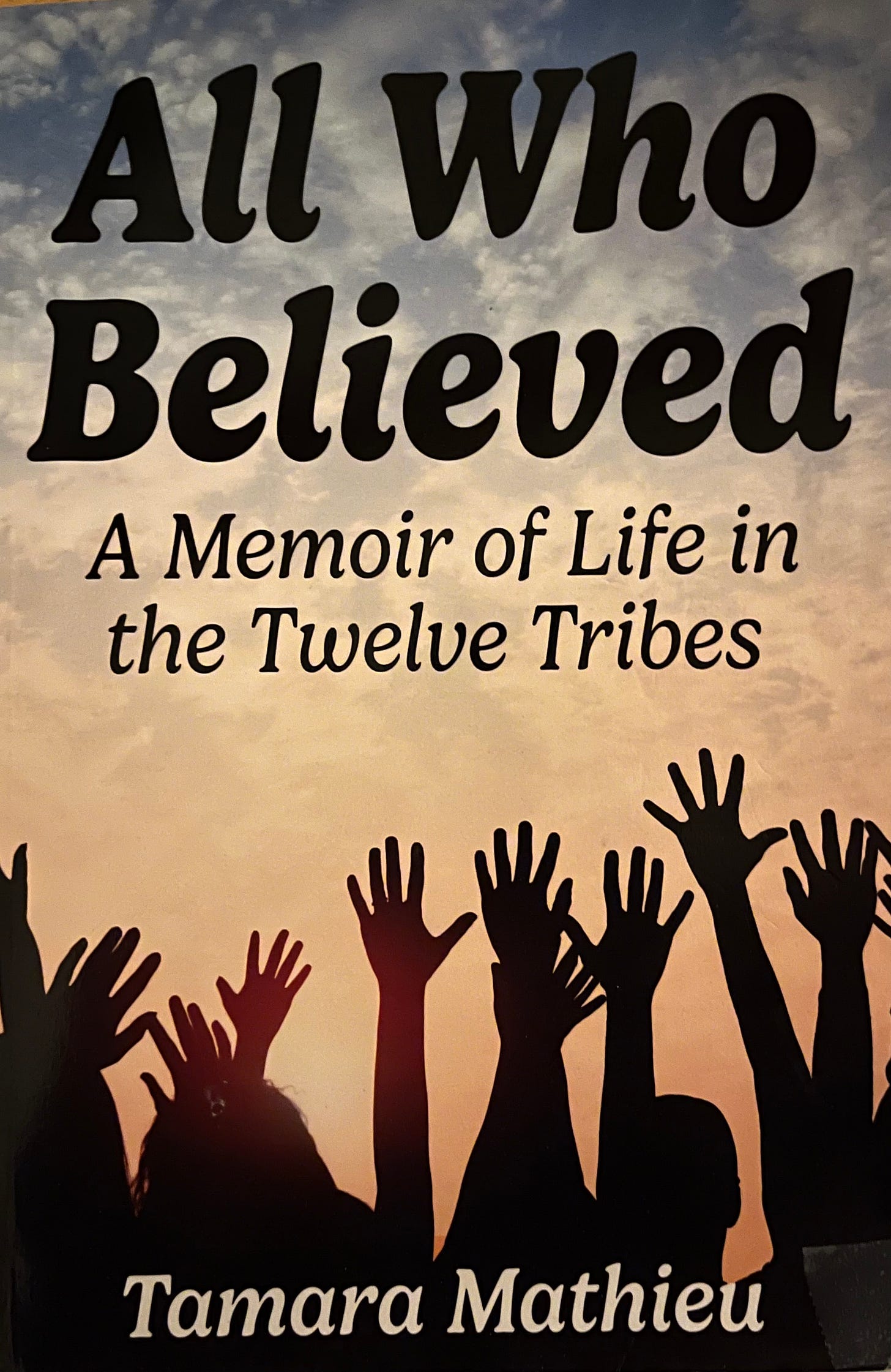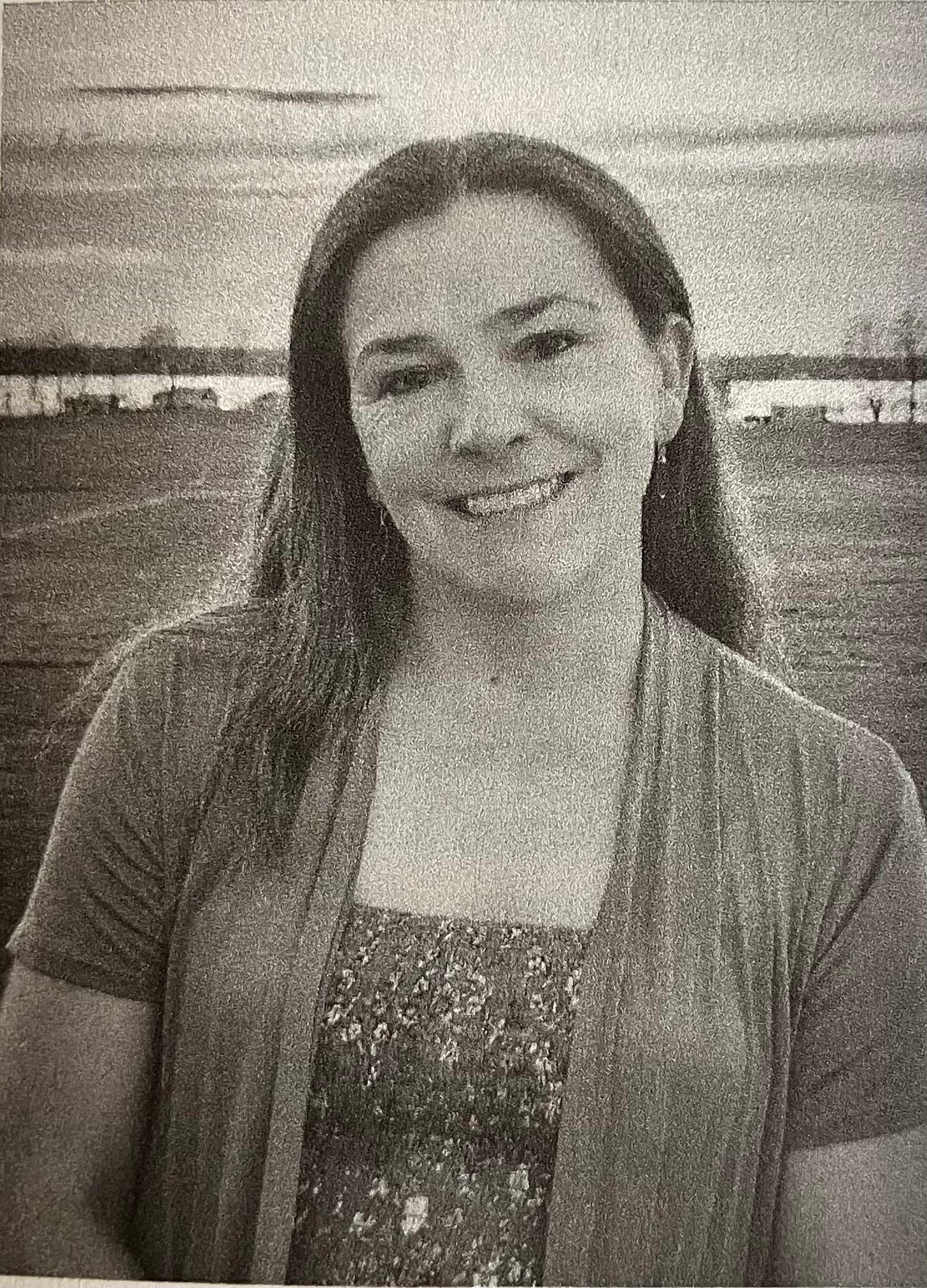Book details life in the Twelve Tribes in Cambridge
Dick Leland, businessman and sportsman, passes away at 87
Please consider supporting The Front Page with a paid subscription: HERE
Twenty-five years ago, Tamara Mathieu was a young wife and mother feeling lost and alone.
She was 23, had left the University of Vermont to care for her child and was wondering if this was all there was to life.
That's when a relative introduced her to a communal community called the "Twelve Tribes."
"The Twelve Tribes is an emerging spiritual nation," it says on its website. "We are a confederation of twelve self-governing tribes, made up of self-governing communities. By community, we mean families and single people who live together in homes and on farms. We are disciples of the Son of God, whom we call by His Hebrew name Yahshua. We follow the Old and New Testament Scriptures, and live like the early disciples in Acts chapters 2 and 4. With all of our hearts, we want to do our Father's will, which is to love one another and be a light to the nations; so that they could see our life of love and know how much their Creator loves them."
What Tamara found were nice people who seemed to have found a better, simpler, more spiritual way to live.
"I hate what the world has become and am scared to raise my children in it," Tamara wrote on the Twelve Tribes website before joining the community in 2000. "I can't stop thinking about your communities. I have always believed in God and have prayed for Him to show me what is right to believe in."
After visiting several of their communities in the northeast, Tamara and her husband joined the community and eventually found themselves living in the Twelve Tribes' community in Cambridge, N.Y.
They spent the next 14 years as part of the community. Her husband became valuable in running the community's various businesses.
In her book All who believed: A memoir of life in the Twelve Tribes, Tamara describes a world of relentless work where women are treated as subordinates to their husbands while subjected to strict rules of behavior for them and their children. There is little free time and initiative is discouraged from the women.
As I read about the daily drudgery and second-class status of the women, I found myself screaming back at the pages - "Why!"
It is the overriding question of how communities like the Twelve Tribes manage to recruit and keep members.
When you talk to the 2025 version of Tamara she does not talk about the "community" like she does in her book, she wields the word "cult" regularly - often like a hammer - to make her point.
Tamara explained the community's philosophy: "They are trying to get everyone on the same page," Tamara said. "But the reasoning behind it, saying it is the order that God intended and if you are obedient you will be protected."
But the flip side is that if you are not obedient, you will not be protected.
That's the threat against every member.
"Anything that happens it comes back to you," Tamara explains. "It is very clear how a wife is supposed to behave."
And if they don't behave that way?
"Some tragedy befalls your family," Tamara said. "it is always hanging over you. My children's eternal destiny is up to me."
To be clear, there is no scandal in Tamara's account of life in the Twelve Tribes. Even now she cites the benefits of living there and says children raised there have become self-sufficient adults and successful businesspeople because they learned to be disciplined and self-sufficient.
Four years after Tamara and her family left, the Twelve Tribes in Cambridge was cited by the New York State Department of Labor for multiple violations of using minors for factory work.
Tamara says she still feels guilty for the way her spirited oldest son was handled as he struggled with the rules and requirements of the community. Mandatory corporal punishment was encouraged.
"I feel the most guilt about him," Tamara said. "He was there from 17 months old. He was just such a normal little boy. He had such an active imagination."
And that was discouraged in the community.
"You are steeped in it slowly over time," Tamara says of the indoctrination. "Suddenly, it is normal."
I return to, "But why?"
"You're in a prison of specialness," Tamara says. "When you are part of the 12 Tribes, you are part of this elite group. Of the billions of people, god hand-picked you. You are so special. Any complaint, any doubt that your have, you remember the purpose you have to be called for."
And if you leave, you have to come to terms with that you are just a normal every-day person.
Tamara, her husband and four children finally did leave the Twelve Tribes in 2014.
Even as they were making their exit with a drive from Florida, Tamara described the fear that at any second, god was going to enact retribution on her family.
She said the ensuing year was extremely difficult.
"There was a lot anxiety," Tamara recalls. She struggled to make new friends and kept to herself. Her two oldest children refused to go to school and she home-schooled them while enrolling her two youngest children in school.
"After a year and a half, I realized I needed to think of myself," Tamara said. She discovered she was 27 credits short of her degree at the University of Vermont. It took five years to get them, but she finally earned her degree and landed a part-time job with Northwestern Support Services working with adults with developmental difficulties.
"I started to meet new people and started to feel like myself again," Tamara said. "A go-getter. You don't have aspirations in the community. It is called `selfish ambition.' The only ambition was to do our father's will."
The part-time job led to a full-time position as a case manager for 20 or so adults with developmental disabilities. And while things are better, she says she, her husband and family still struggle at times.
"When we joined the community, we were 23 and had known each other for five years," Tamara said about her husband. "Even now... things will come out. It is hard to get through. We've all had some sort of therapy. You just work through it.
"My husband apologized for the ways he hurt me," Tamara said. "I just never realized that if I had the courage to leave, he would have left too.
"I was a not a religious zealot looking for god's people," Tamara said, "and I still got swept up in a cult."
Her husband has found a new career in IT.
Her oldest son has established his own business, is married and has two children.
Her two daughters are going to school to be dental hygienists.
Her youngest son is now 17 and living a normal high school life.
And Tamara has a career she loves.
She says she still believes in the idea of a higher power, but does not prescribe to any particular organized religion.
I finally asked her what is the best part of her current life.
"Just, all of us doing the normal little things," Tamara said. "Just being able to play with (my grandchildren). Something as simple as that. Turning on music and dancing and being silly and not having to worry about doing some task."
New Chapman exhibit
The Chapman Museum will debut its new exhibit "Dining Out" on Saturday from 10 a.m. to 4 p.m.
The exhibit will highlight the unique stories of select local restaurants in Glens Falls and trace their roots and evolution as integral parts of the community. It will feature photographs of more than 20 local restaurants while focusing on 10 prominent businesses.
They include De Santis Restaurant, Commodore Restaurant, Harold's Country Kitchen, and the Old Trading Post while also highlighting long-time restaurants like Massie's, Peter's, and New Way Lunch.
Admission is free with refreshments and crafts for children and families.
Dick Leland passes
Dick Leland was one of the first people I met when I arrived in Glens Falls in 1988.
He was still playing noon ball basketball at the YMCA and had that old-fashioned hook shot which he never missed.
I was the sports editor at The Post-Star then and Dick was a big sports guy. He had played football with the Greenjackets for years and when I needed someone to sponsor our all-star teams, Dick volunteered LeLand Paper.
From time to time I heard from Dick after I became editor, but we lost touch over the years.
He was an old-fashioned community guy that you don't see anymore.
There aren't many like him anymore.
He was 87.
Glens Falls pardon
The Times Union reported earlier this week a Glens Falls man was one of the people pardoned by President Trump for his actions on January 6.
James Bonet, 33, of Glens Falls was sentenced to 90 days in jail and one year of post-incarceration supervised release in March 2022. He was also ordered to pay $500 restitution.
The T-U described him as a fast-food worker in Saratoga Springs who was arrested after his co-workers spotted social media images of him on a U.S. senator's desk inside the Capitol. Bonet also bragged about it at work. His workers turned him into the FBI five days after the riot.
The Times Union reported he said in a video, “We made it in the building, bitches! We’re taking it back!”
The T-U also reported that Bonet claimed Trump won the 2020 election and insisted the government was “trying to hide a species of alien lizard people who live underground.”
In October 2021, Bonet pleaded guilty to knowingly entering or remaining in a restricted building or grounds. His 90-day sentence was twice the amount requested by the prosecution.
Great headline
After its historic snowfall this week, The Times Picayune in New Orleans delivered an award-winning headline on its Thursday front page that proclaimed: "Big Freezy" to play on the city's nickname as "The Big Easy."
Temperatures continued to warm on Thursday, but downtown New Orleans was still mostly iced over Thursday morning. Snowplows had been secured from Indiana to get the interstate open.
Energy crisis
President Trump proclaimed the United States is in the midst of an energy crisis and proclaimed a national emergency this week.
The New York Times pointed out this week: "The nation’s energy situation hardly seems like an emergency: The United States is producing more oil than any country ever has, in no small part because of the fracking boom and because of thousands of new permits to drill on federal lands issued by the Biden administration — outpacing Mr. Trump’s first-term record. Prices for gasoline, natural gas and electricity are relatively low compared with their historical levels."
Pardon pushback
To follow up on the pardons of those prosecuted on January 6, Heather Cox Richardson reported this morning, "The country’s largest police union, the Fraternal Order of Police, has spoken out against the pardons, as has the International Association of Chiefs of Police. The Wall Street Journal editorial board wrote: “Law and order? Back the blue? What happened to that [Republican Party]?” “What happened [on January 6, 2021] is a stain on Mr. Trump’s legacy,” it wrote. “By setting free the cop beaters, the President adds another.”
So there has been some pushback, but nothing I have heard from any local Republicans.
No headlines
Several of President Trump's executive actions are not making headlines but could have significant consequences.
Heather Cox Richardson also reported this morning that "Trump’s team has told the staff at Department of Health and Human Services—including the Food and Drug Administration (FDA), the Centers for Disease Control and Prevention (CDC) and the National Institutes of Health (NIH)—to stop issuing health advisories, scientific reports, and updates to their websites and social media posts."|
Do Trump voters approve of those actions as well?
The Washington Post reported this week that the CDC was to publish reports on the avian influenza this week. The avian flu has shut down Georgia’s poultry industry.
Ken Tingley spent more than four decades working in small community newspapers in upstate New York. Since retirement in 2020 he has written three books and is currently adapting his second book "The Last American Newspaper" into a play. He currently lives in Queensbury, N.Y.









It must have taken Tamara Mathieu so much courage to break away. I recall buying some of the lavender products made by the 12Tribes, thinking I was good supporting local business. Then as I learned more (thinking I'd see if one could go there and buy direct), I became wary. There is no win/win here.
I read an article yesterday about a woman who was pardoned and declined it says he knew what she did was wrong and accepted the punishment.